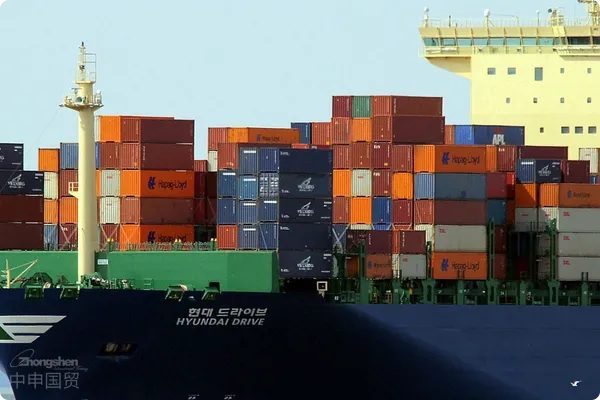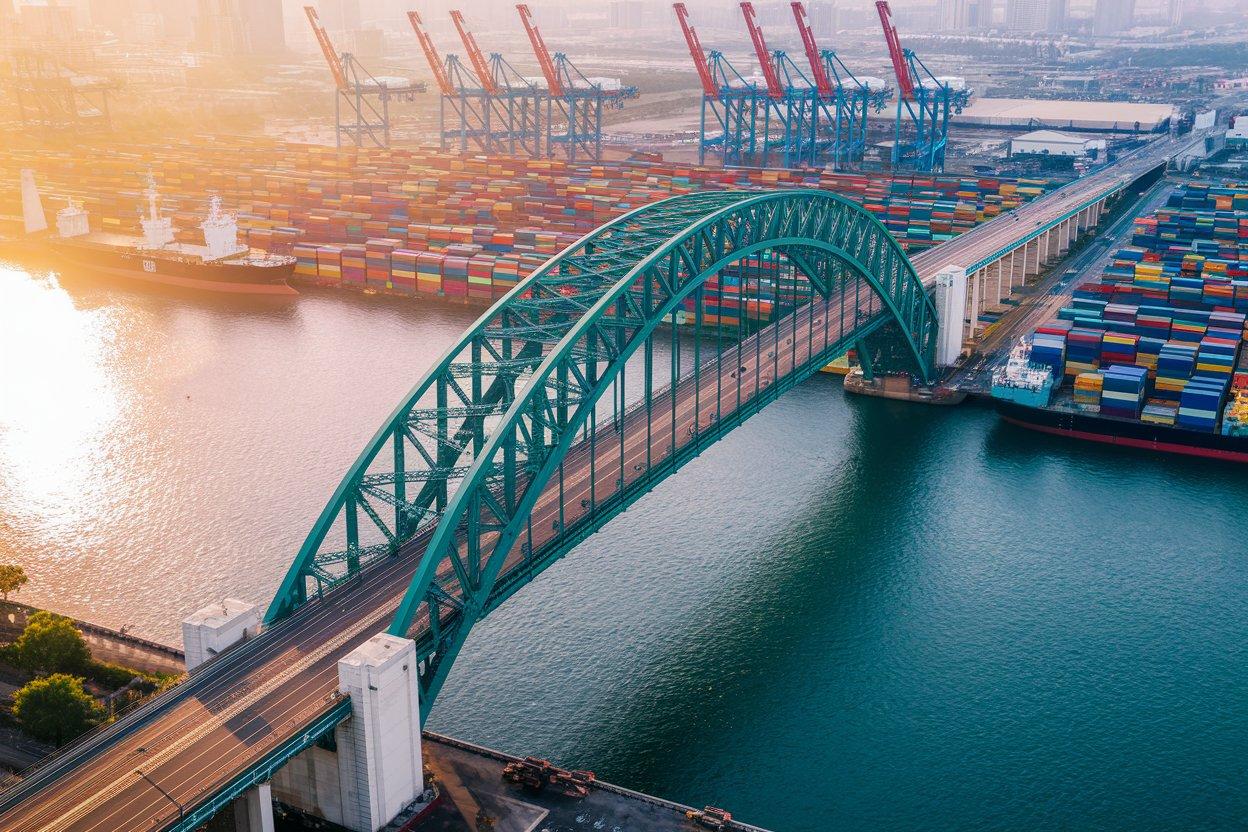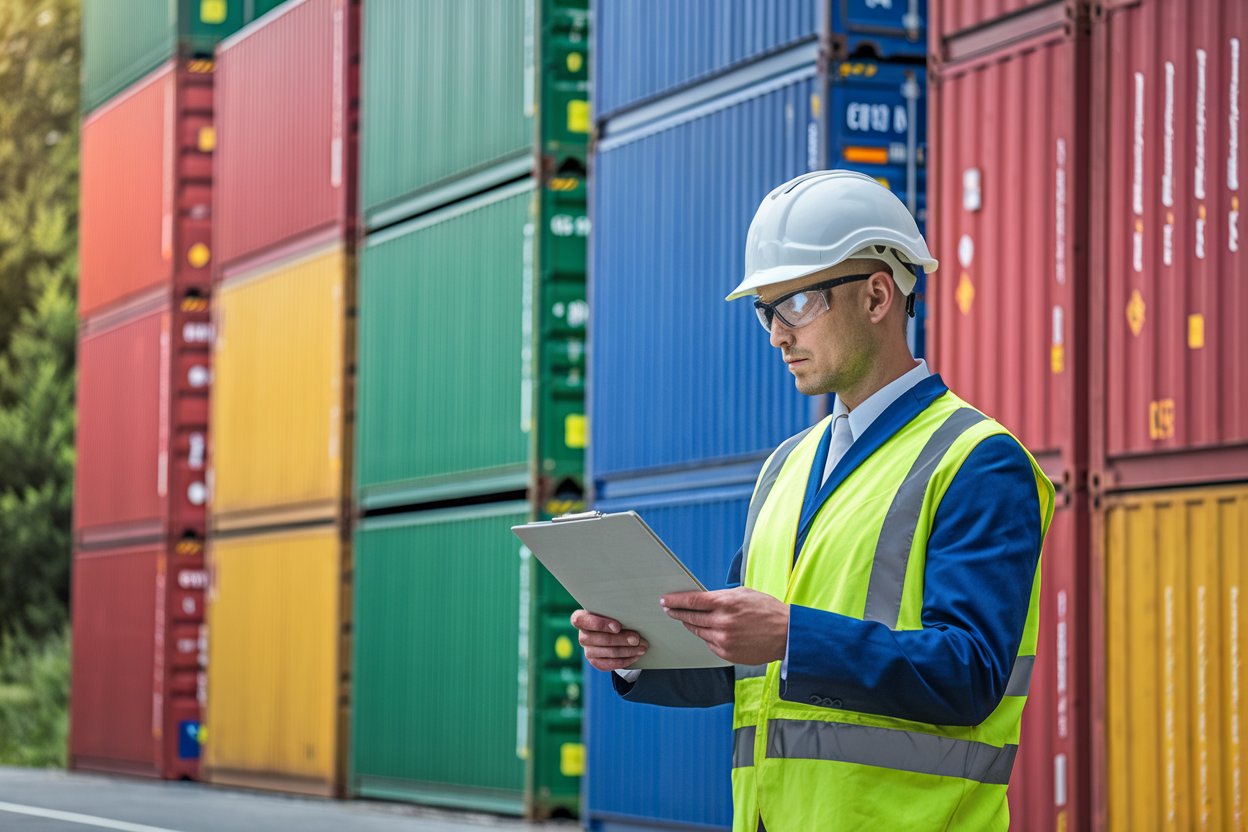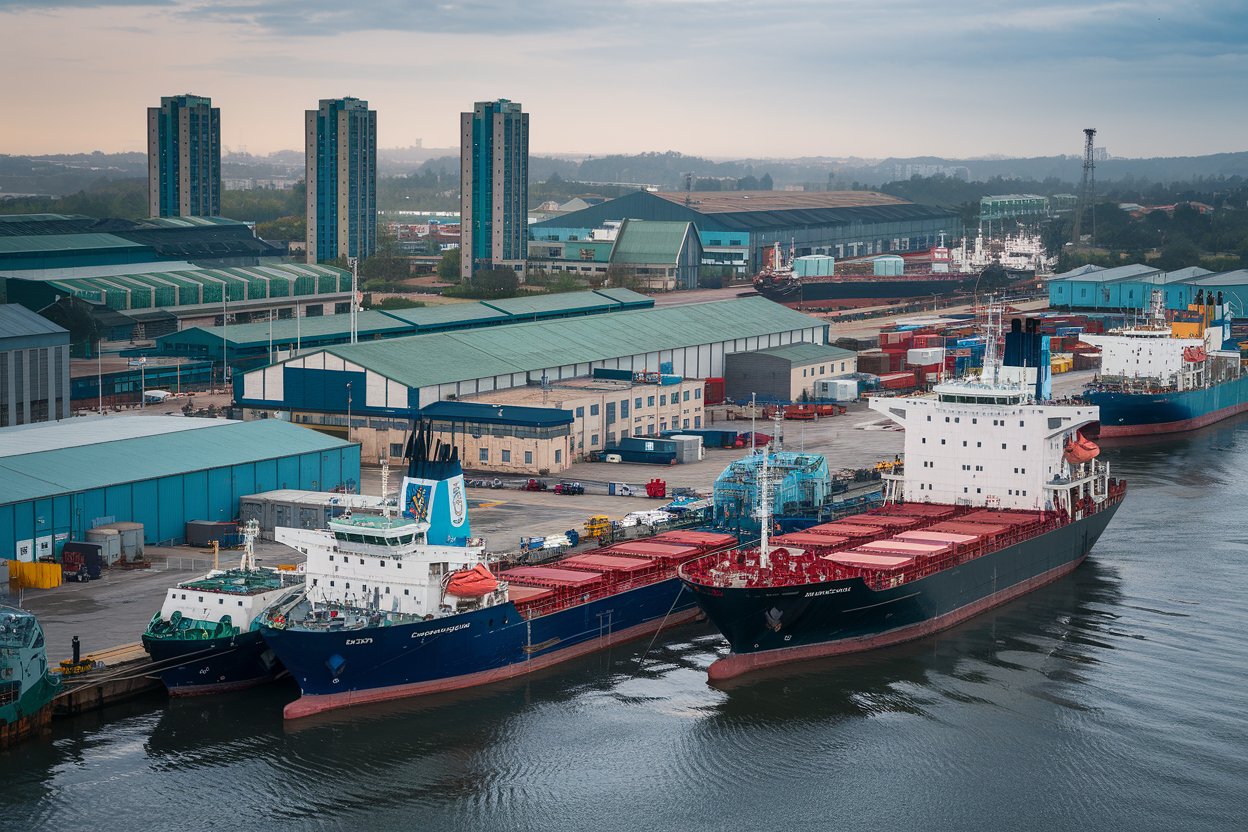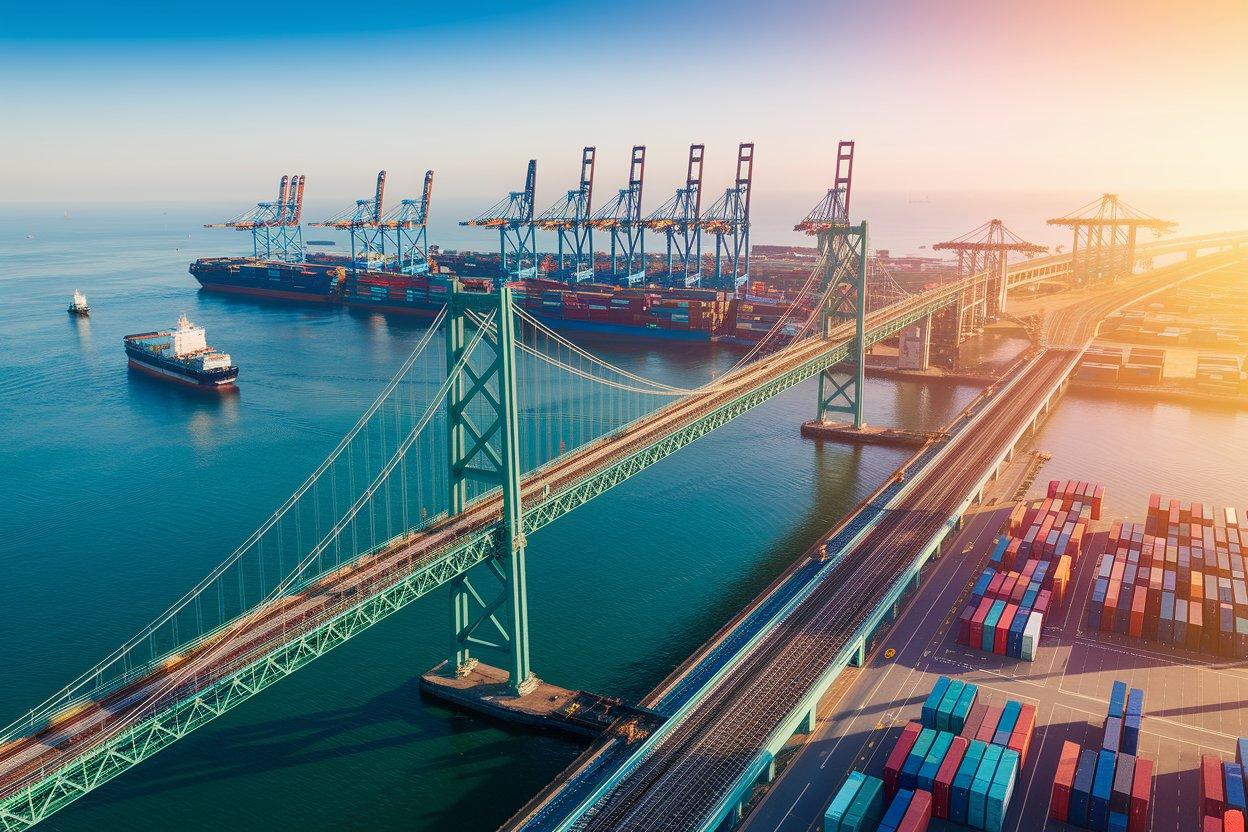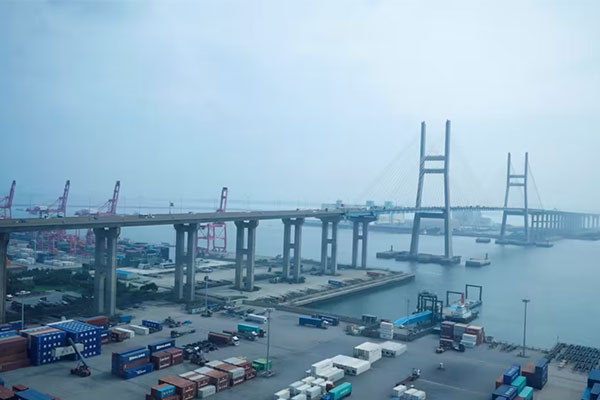How to Choose a Reliable International Trade Agent for Piano Exports? The 2025 Ultimate Guide
五月开心婷婷六月丁香婷 |
国产精品久久久久久一区 |
国产精品羞羞答答色哟哟 |
亚洲av日韩av全部精品 |
精品日韩一区二区三区中文字幕 |
国产高颜值美女主播在线 |
欧美日韩一码二码三区四区
|
欧美日韩国产中文在线一区二区 |
亚洲综合色一区二区三区另类
|
亚洲欧美日韩中文字幕高清
|
欧美中文字幕一二三四乱码 |
日韩精品一区二区三区色 |
久久精品店一区二区三区 |
亚洲无人区乱码中文字幕 |
国内偷拍高清精品视频免费 |
18禁无遮挡禁无遮挡免费播放
|
国产精品一区二区白浆视频 |
美女成人亚洲黄色福利视频 |
久久久91精品国产一区二区精品 |
91精品国产薄丝高跟在线播
|
午夜精品久久久久久久2023 |
日韩欧美精品久久久免费 |
亚洲视频在线观看第一区 |
一本不卡欧美一区二区三区 |
亚洲毛片av不卡一区二区三区 |
成人免费av中文字幕电影 |
一区二区三区日韩欧美国产 |
一区二区三区四区中文字幕欧美 |
深深婷婷久久爱做狠狠天天 |
天堂资源网一区二区三区 |
日韩中文字幕久久一二三区 |
久久综合婷婷伊人五月天 |
国产一区二区精品久久呦 |
久久久精品久久久精品久久 |
欧美日韩亚洲中文字幕一区 |
亚洲中文字幕三级电影 |
久久久精品欧美一区二区免费 |
久久久精品一区二区免费 |
日韩欧美一区二区三区中出内射
|
亚洲国产激情免费观看网站 |
日韩免费高清中文av |
一区二区三区中文字幕四季 |
欧美成人精品一区二三区在线观看 |
日韩一区日韩二区日韩三区 |
欧美日韩久久久一区二区三区 |
人妻av在线一区二区三区 |
色姑娘天天操天天日天天舔 |
日韩av一区二区三区免费观看
|
日韩中文字幕久久一二三区
|
日韩精品成人av免费看 |
天天干天天日天天干天天日狠 |
91久久国产精品久久91 |
国产毛片一区二区三区秋郁浓 |
亚州中文字幕乱码中文字幕 |
日本免费电影在线观看一区二区三区
|
手机在线观看网址你懂的 |
av网站在线免费观看入口
|
欧美国产一区二区三区在线播放 |
嫩草国产一区二区三区av |
亚洲av噜噜噜一区二区三区 |
欧美高清亚洲一区二区在线观看 |
婷婷99精品国产97久久综合 |
欧美黄色免费网站在线观看 |
午夜天堂av天堂久久久 |
欧美国产日本一区二区三区 |
国产亚洲欧美日韩在线爱豆
|
精品久久久一区二区三区国产 |
国产一区二区三区色噜噜91 |
国产精品视频一区二区三区首页
|
亚洲欧美国产日韩中文丝袜 |
最近中文字幕高清免费大全 |
色噜噜日韩精品欧美一区
|
爱丝官网一区二区午夜福利视频 |
一区二区三区亚洲中文字幕 |
欧美一区二区在线电影网 |
欧美色欧美精品在线观看 |
成人美女黄网站色大色费全看下载 |
欧美中文字幕精在线不卡 |
久久国产亚洲精品超碰热 |
亚州女同性恋一区二区三区 |
精品国产一区二区色老头 |
国产av一区二区日夜精品剧情 |
亚洲综合精品一区二区三区
|
韩国三级电影善良的嫂子 |
国产欧美一区二区三区精剧 |
亚洲成人日韩高清在线观看 |
国产亚洲欧美一区二区精 |
色悠久久久久综合网小说 |
人妻在线视频一区二区三区 |
日韩欧美精品久久久免费 |
亚洲精品乱码久久久久久电影 |
欧美与黑人午夜猛交久久 |
欧美大陆日韩一区二区三区 |
中文字幕一区二区人妻秘书
|
亚洲国产成人久久综合小说 |
小说区图片区视频区亚洲 |
国产综合久久精品东京热
|
欧美黄片一区二区三区在线观看 |
欧美人式的精品一区二区 |
欧美黄色男人日女的阴道 |
99久在线国内在线播放免费观看 |
亚洲国产精品美女久久久久久久 |
日韩男女激情片段在线观看视频 |
精品国产aⅴ一区二区三区在线看 |
成人欧美一区二区三区视频 |
超碰超碰超碰超碰超碰图片 |
欧美精品一区二区三区日韩 |
亚洲精品乱码国产精品乱码 |
国产老熟女午夜精品视频 |
在线看片日本免费一区二区 |
97视频在线观看男人的天堂
|
欧美激情综合色综合啪啪啪五月 |
日韩欧美国产在线看免费 |
久久国产夜色精品鲁鲁99 |
免费无遮挡午夜视频网站
|
五月婷婷六月丁香在线播放 |
狠狠人妻久久久久久综合69 |
亚洲精品国产成人久久精品网 |
国产成人精品高清在线麻豆 |
国产成人女人毛片视频在线
|
久久精品女人天堂av免费版 |
国产美女捏自己奶头91 |
色狠狠婷婷一区二区三区 |
国产老熟女午夜精品视频 |
日韩国产一区二区三区av |
国产一区二区精品久久呦 |
一区二区三区亚洲欧美日韩人色
|
欧美一区二区三区激情免费 |
日本免费中文字幕一区二区久久
|
亚洲中文欧美日韩在线不卡 |
免费大片a一级久久国产 |
国产精品国产三级农村妇女 |
色婷婷av一区二区三区免费 |
伊人影院在线免费观看电影 |
精品五月天草原婷婷在线视频 |
国产精品夜夜春夜夜爽久久小 |
欧美综合在线观看一区二区 |
亚洲日本精品麻豆一区国产 |
精品国产熟女一区二区三区 |
人妻精品未满十八少妇精品 |
中文字幕精品久久一区二区三区
|
国产成人亚洲综合小说区 |
黄黄黄污污污的免费网站 |
午夜精品久久久久久久9蜜桃 |
不卡在线一一区二区三区91 |
久久久精品午夜免费不卡 |
精品中文字幕久久久久久 |
中文字幕欧美精品人妻一区 |
久碰久摸久看好男人视频 |
国产流白浆一区二区三区免费视频
|
亚洲成av人一区二区三区 |
日韩不卡一区二区三区四区 |
我想看欧美一级特大黄片 |
日本一区二区不卡免费观看 |
黄色欧美精品一区二区三区 |
91人妻久久久久99精品系列 |
欧美一区二区三区免费观看视频 |
中文字幕欧美激情一区二区 |
国产亚洲欧美另类久久久 |
欧美一区二区三区综合色 |
久久精品亚洲熟女av蜜謦 |
欧美巨大精品一区二区三区 |
成人精品一区二区三区电影黑人 |
久久精品国产亚洲av日韩 |
欧美精品国产日韩一区二区三区
|
国产精品白丝av嫩草影院 |
国产欧美另类久久久精品不卡 |
我想看欧美一级特大黄片 |
人妻少妇电影一区二区三区四区 |
97超碰人人看超碰人人 |
中文字幕成人精品久久不卡 |
色噜噜色狠狠狠狠狠综合色一 |
国产丝袜美女av一区二区三区 |
午夜天堂av天堂久久久 |
国产午夜精品理论片免费视频 |
激情久久av区二区av |
日本高清二区视频久二区 |
黄色片黄色片黄色片亚洲黄色片 |
国产尤物精品视频免费网站 |
欧美日韩久久一区二区三区 |
色狠狠婷婷一区二区三区 |
国产精品日本欧美一区二区三区 |
日韩精品一区二区三区射精 |
美女爱爱图片一区二区三区 |
色播五月麻豆激情综合网 |
北岛玲成人精品一区二区三区 |
手机在线免费观看你懂得 |
亚洲精品九九九人妻av |
日韩精品亚洲一区二区三区四区 |
国产一级二级三级在线观看视频 |
成人国产一区二区三区精品不卡 |
国产精品一区二区剧情熟女 |
国产亚洲精品久久久一区 |
国产免费一区二区三区性色 |
欧美日韩精品一区二区不卡 |
亚洲第一欧美一区二区精品 |
精品久久久久久99蜜桃 |
日本大香蕉一本到免费无一码 |
亚洲av噜噜在线最新网站 |
日韩精品中文字幕网在线 |
亚洲欧美不卡高清在线观看
|
免费大片a一级久久国产 |
无人区码一码二码三码区 |
午夜精品国产一区二区电影 |
蜜臀av在线精品国自产拍 |
国产精品午夜福利免费视频 |
亚洲国产成人激情视频在线
|
日韩一级黄色片在线观看的 |
欧美成人精品三级在线观看播放
|
欧美日韩精品一区二区在线 |
国产自产av一区二区三区性色 |
中文字幕在线高清第一页 |
亚洲av午夜精品久久久 |
日韩精品 亚洲一区二区三区 |
精品中文字幕久久久久久 |
婷婷99精品国产97久久综合
|
国产欧美国产精品第二区 |
久久精品国产亚洲av日韩 |
深深婷婷久久爱做狠狠天天
|
日本五十路六十路熟妇 |
国产精品嫩草影院在线污污污 |
国产农村妇女一二三区
|
亚洲男人天堂久久久久久久 |
一本之道av免费在线观看 |
欧美一级高清片国产特黄大片一
|
丁香六月婷婷激情综合 |
亚洲精品国产成人久久精品网 |
欧美成人高清精品一区二区 |
激情久久av区二区av |
暗交小拗女一区二区三区 |
99久在线国内在线播放免费观看
|
亚洲精品成人天堂一二三 |
国产一区二区精品久久呦 |
亚洲日本中文字幕高清在线 |
日韩欧美国产中文字幕综合 |
日本片一区二区在线视频 |
日韩不卡一区二区三区四区 |
久久久久精品久久综合av |
五月综合婷婷开心综合婷婷 |
亚洲色图国产精品一区二区三区 |
欧美日韩精品系列一区二区
|
欧美精品国产精品日韩系 |
一区二区三区中文字幕四季 |
在线观看日韩中文字幕av |
一本之道av免费在线观看 |
亚洲国产激情免费观看网站
|
日韩av成人影院在线观看 |
欧美日韩一区二区三区四区视频 |
欧美一区两区三区在线观看 |
国产一区二区在线播放黄色高清
|
欧美黄片一区二区三区在线观看
|
69热视频在线观看免费 |
国产欧美日韩一区二区三区精品 |
手机在线不卡二区中文字幕 |
国产精品美女下面无遮挡 |
日韩在线视频不卡一区二区三区 |
国产专区一线二线三线av
|
日本一区二区三区免费不卡视频
|
19久久久国产一区二区 |
综合久久五十路熟女中出 |
手机在线观看网址你懂的 |
国产精品免费一区二区视频 |
国产美脚交足视频在线观看 |
日韩精品成人av免费看 |
国产精品妇女久久久久久 |
亚洲精品一区二区三区免 |
开心五月激情五月婷婷综合网 |
国产亚洲精品久久久久久久久动漫
|
精品少妇极品久久久久久久
|
国产欧美日韩精品久久久
|
红杏开心五月天中文字幕 |
国产麻豆精品电影在线观看 |
中美日韩在线一区黄色大片 |
亚洲成av人黄网站在线观看 |
亚洲精品高清视频在线播放 |
久久精品一区二区66 |
午夜激情丝袜美腿诱惑影院 |
久久精品美女av一区二区 |
欧美午夜精品一区二区三 |
一区二区三区欧美一级爽 |
蜜臀av在线精品国自产拍
|
18禁真人污视免费网站 |
一区二区三区久久久久国产精品 |
色狠狠婷婷一区二区三区 |
日韩在线欧美在线国产在线
|
国产拍欧美日韩视频一区 |
亚洲av日韩av全部精品 |
国产精品一区二区色蜜蜜 |
日本免费电影在线观看一区二区三区
|
国产精品福利在线播放 |
在线播放国产久草性av |
亚洲大色堂国产资源在线观看
|
国产精品自产在线观看一 |
国产精品视频一区二区三区首页
|
一区二区三区视频二男一女 |
亚洲中文字幕日韩一区二区 |
国产伦精品99久久自偷国产 |
99久久精品免费看国产一区 |
九九在线免费观看电影网 |
天堂资源网一区二区三区 |
日韩中文字幕有码午夜美女 |
91丝袜精品久久久久久久人妻 |
久久精品女人天堂av免费版 |
午夜激情丝袜美腿诱惑影院 |
爱丝官网一区二区午夜福利视频 |
一区二区三区日韩欧美国产 |
久久久亚洲最大ⅹxxx |
手机在线免费观看你懂得 |
乱人伦人妻中文字幕禁忌1 |
国产av一区二区色呦呦 |
久碰久摸久看好男人视频 |
国产精品国产三级国产av主播 |
99re热在线播放视频 |
国产精品一区二区色蜜蜜 |
国产一区二区三区网站视频
|
久久国产精品一区二区三区精品 |
私人小影院网站午夜在线观看 |
欧美极品一区二区三区欧美大片 |
99久久精品免费看蜜桃 |
国产欧美精品区一区二区三 |
久久久91精品国产一区二区精品 |
欧美老人激情五月综合网 |
亚洲天堂2020地址免费观看 |
国产成人啪精品午夜网站 |
国产激情久久久久久熟女 |
亚洲视频国产视频自拍视频 |
美女成人亚洲黄色福利视频 |
久久久久国产一区二区三区下载 |
国产一区二区三区亚洲综合 |
久久精品亚洲熟女av蜜謦 |
日韩激情视频免费在线观看 |
欧美激情综合色综合啪啪啪五月 |
国产精品黄网站免费进入 |
国产视频日韩视频欧美视频 |
婷婷六月开心六月色六月
|
久久精品国产亚洲av蜜臀 |
青青草亚洲综合成人一区 |
日韩精品一区二区三区色 |
欧美日韩中文字幕午夜在线 |
神马午夜福利影院在线观看 |
精品国产污污在线18禁 |
精品久久久国产成人久久综合一 |
五月婷久久不能精品视频 |
亚洲国产精品久久久久性色
|
国产成人精品高清在线麻豆 |
亚洲一区二区三区自拍偷拍 |
欧美岛国精品综合一区二区久久 |
av色先锋音影一区二区啪啪操 |
国产精品亚洲精品日韩已满十八小
|
五月婷婷啪啪啪综合视频 |
网友自拍偷拍视频一区二区 |
深深婷婷久久爱做狠狠天天 |
中文字幕加勒比视频二区 |
国产美脚交足视频在线观看 |
国产精品亚洲二区在线看 |
欧美日韩免费电影一区二区 |
日韩欧美亚洲乱码中文字幕 |
久久99国产精品一区二区三区 |
久久精品久久精品久久精品 |
国产乱人精品视频69av |
亚洲国产欧美亚洲国产欧美 |
欧美高清亚洲一区二区在线观看
|
最新国产美女一区二区三区 |
美美女高清毛片免费视频 |
免费欧美一区二区三区四区 |
亚洲欧美日本在线视频观看 |
国产一区二区在线播放黄色高清 |
男女污污视频在线观看国产 |
免费看污片网站在线观看 |
久久天堂一区二区三区av |
国产高清精品免费在线观看 |
亚洲欧美日韩偷拍一区二区三区 |
亚洲精品乱码久久久久久小说 |
一区二区日韩精品中文字幕 |
你懂的国产精品永久在线 |
91的麻豆精品国产自产在线 |
欧美日韩精品一区二区在线观看 |
国产精品免费在线一区二区
|
欧美精品国产一区二区免费 |
久久91精品国产丰满美女 |
免费欧美一区二区三区四区 |
亚洲春色另类小说校园 |
乱色老熟妇一区二区三区 |
欧美一区日韩二区日韩二区 |
久久久亚洲最大ⅹxxx |
国产一区二区三区网站视频 |
国产自产av一区二区三区性色 |
久久久一区二区三区999 |
在线精品日韩亚洲欧一二三区
|
国产精品久久久久久久久久久痴汉
|
亚洲中文字幕一区二区三区四 |
亚洲中文欧美日韩在线不卡 |
国产精品1区二区三区 |
亚洲国产av一区二区香蕉精品 |
欧美色综合天天综合高清网 |
久久蜜臀av一区二区中文字幕 |
久久国产精品骚熟女av |
一本大道综合伊人精品热热 |
小说区图片区视频区亚洲 |
亚洲国产激情免费观看网站 |
亚洲精品亚洲人在线观看 |
欧美黄色男人日女的阴道 |
国产精品综合视频一区二区三区 |
巨乳人妻的诱惑电影日本 |
国产性情片一区二区三区
|
欧美午夜一区二区三区精品 |
国产精品久久久久久久久久久痴汉 |
成片免费视频观看大全一起草 |
日韩a国产v亚洲欧美精品 |
亚洲成人日韩高清在线观看 |
亚洲欧美日本在线视频观看 |
国产精品久久久国产盗摄 |
大香蕉再在线大香蕉再在线 |
欧美精品国产精品日韩系 |
亚洲男人的天堂av中文字幕
|
日本男女啪啪啪一区二区三区 |
国产亚洲欧美另类久久久 |
亚洲欧美国产一区二区三区奶水 |
黄色欧美精品一区二区三区 |
午夜精品久久久久久久第一页 |
亚州国产欧美一区二区三区 |
精品亚洲国产成人痴汉av |
国产一区二区三区精品成人爱 |
四季av一区二区三区中文字幕 |
亚洲熟女av综合一区二区三区个 |
雅日韩欧美一区二区三区 |
日韩和欧美的一区二区三区 |
日本av电影一区二区在线观看 |
午夜视频久久播五月婷婷 |
亚洲国产av一区二区三区 |
一区二区三区三级18岁看的 |
爱丝官网一区二区午夜福利视频 |
国产一区二区三区精品在线观看
|
亚洲精品aⅴ中文字幕乱码麻豆 |
91人妻人人澡人人爽从精品 |
久久久国产成人精品二区 |
国产一区二区三区色噜噜91 |
国产黄色一级电影一区二区
|
久久夜色撩人精品国产小说免费
|
在线播放国产久草性av |
91精品国产91久久久久久 |
亚洲av噜噜在线最新网站 |
91在线精品免费一区欧美直播
|
雅日韩欧美一区二区三区
|
尤物精品国产第一福利网站 |
婷婷六月开心六月色六月 |
久久精品一二欧美无婷婷 |
久久精品国产亚洲av蜜屁股 |
国产精品一区二区白浆视频
|
久久精品一区二区中文字幕 |
三级av电影在线免费观看 |
国产精品欧美三级在线观看 |
国产精品欧美日韩在线观看 |
中文字幕日韩在线第一区 |
91视在线国内在线播放 |
国产在线视频欧美一区二区三区 |
日韩精品一区二区三区四区不卡 |
日本a级一区二区资源网站 |
你懂的国产精品永久在线 |
精品少妇极品久久久久久久 |
韩国三级电影善良的嫂子 |
亚洲av另类激情一卡二卡不卡 |
亚洲第一欧美一区二区精品
|
成人国产一区二区三区精品不卡 |
亚洲国产精品美女久久久久久久 |
国产成人女人毛片视频在线 |
成人黄色小视频下载网站 |
中文字幕 日韩经典 人妻 |
日韩电影免费看中文字幕 |
亚洲精品国产成人久久精品网
|
亚洲一区二区三区av在线 |
日本免费电影在线观看一区二区三区
|
99re热在线播放视频 |
亚洲欧美日韩综合第一第二区
|
欧美成人午夜一区二区三区 |
日韩在线欧美在线国产在线
|
99久在线国内在线播放免费观看 |
日韩熟女精品一区二区三区视频 |
国产精品一区二区色蜜蜜 |
黄色小说女久久久精品免费 |
日本高清视频在线网站不卡 |
亚洲欧美色欧另类欧日韩 |
欧美日韩国产亚洲乱码字幕 |
人妻少妇电影一区二区三区四区 |
亚洲午夜福利国产门事件 |
亚洲另类国产精品一区二区三区
|
亚洲精品在线中文字幕第一页 |
91精品国产综合久久久久久蜜月 |
飞极速在线观看日韩av |
亚洲综合色婷婷在线影院p厂 |
国产a级精品一区二区免费看视频
国产激情av一区二区三区
|
亚洲日本中文字幕高清在线 |
亚洲视频在线观看第一区 |
欧美日韩精品视频一区二区三区四区 |
久久精品国产亚洲av蜜臀 |
欧美日韩一区二区三区四区视频
|
久久天堂一区二区三区av |
久久精品噜噜噜成人av |
精品国产乱码久久久久久软 |
欧美精品秘密入口一区二区三区 |
日韩免费高清中文av |
婷婷四房综合激情五月在线 |
在线日本一区二区免费观看 |
在线看的中文av网址导航 |
欧美精品久久久久久一区二区三区
|
亚洲欧美人成综合在线另 |
开心五月激情五月婷婷综合网 |
欧美中文字幕一区二区综合我 |
欧美一区二区三区四区五 |
日本高清不卡电影一区二区 |
精品亚洲国产成人痴汉av |
亚洲精品一区二区三区免 |
美国毛片亚洲社区成人看 |
亚洲国产精品久久久二区 |
国产伦精品一区二区三区在线观
|
一区二区三区在线视频欧美
|
国产精品初高害羞小美女 |
手机在线免费观看你懂得 |
日本片一区二区在线视频 |
久久这里只有精品好国产 |
国产看片色网站亚洲av |
国产一区免费在线观看99 |
欧美日韩精品一区二区不卡 |
欧美成人精品一区二三区在线观看 |
欧美午夜一区二区三区精品 |
国产欧美亚洲精品第一页 |
欧美日韩久久久一区二区三区 |
97超碰人人看超碰人人 |
亚洲精品乱码国产精品乱码 |
精品国产污免费网站入口 |
青苹果影院在线亚洲一区二区三区
|
一区二区三区三级18岁看的 |
欧美日韩精品一区二区中文字幕 |
久久精品女人18国产毛片 |
精品久久久久久久免费影院大全 |
国产精品91一区二区三区四区
|
国产亚洲欧美日韩在线爱豆 |
国产亚洲成人av看黄在线观看 |
999中文视频在线观看 |
黄页网站免费观看小视频 |
激情久久av区二区av |
国产亚洲欧洲av一区二区三区 |
韩国三级华丽外出在线观看
|
亚洲欧美一区二区精品性色 |
欧美一区二区三区四区五区 |
伊人久久大香线蕉综合bd高清 |
国产精品午夜福利影院在线观看 |
亚洲欧美日韩综合第一第二区 |
久久国产精品骚熟女av |
日本牲交大片在线一区二区
|
国产精品久久久精品一级 |
国产成人亚洲欧美在线二区小说 |
亚洲国产欧美在线人成人 |
久久天堂一区二区三区av |
欧美亚洲国产日韩品久久 |
欧美色精品视频在线观看 |
五月婷婷啪啪啪综合视频 |
亚洲av伊人久久综合小说 |
国产精品免费在线一区二区 |
后入亚洲美女一区二区三区 |
亚洲av日韩av全部精品 |
亚洲国产欧美在线人成人 |
国产成人91色精品免费网站 |
最新国产美女一区二区三区 |
一区二区三区三级18岁看的 |
亚洲熟女自拍偷拍一区二区 |
av免费在线观看资源网站 |
亚洲中文字幕丝袜熟女久久 |
亚洲视频在线观看第一区 |
91精品国产乱码久久蜜桃麻豆 |
91久久精品一区二区三区大 |
国产激情av一区二区三区 |
日本高清不卡中文字幕免费 |
麻豆一区二区国产三区亚洲人 |
亚洲国产一区二区在线网站网址 |
91久久国产综合久久91 |
免费看国产污黄剧情网站 |
日韩精品中文字一区二区 |
亚洲情色av在线免费观看 |
欧美视频黄页大全在线观看 |
色哟哟一区二区国产精品 |
亚洲欧美日韩在线精品2区 |
午夜福利合集极品精品视频 |
日韩欧美中文字幕1234区 |
日韩欧美人妻精品91高清久久 |
人妻体体内射精一区二区
|
91精品国产综合久久久久久蜜月
|
在线播放国产久草性av |
久久久精品少妇一区二区三区 |
日韩精品 中文字幕 有码系列 |
亚洲欧美日韩中文字幕高清 |
欧洲精品一区二区三区中文字幕
|
蜜臀人妻精品一区二区免费 |
一本色道久久99精品综合 |
风流老熟女一区二区三区l |
国产一区你懂的在线观看 |
爱丝官网一区二区午夜福利视频 |
日韩人妻精品久久久久久 |
国产精品日韩欧美在线第一页 |
不卡在线一一区二区三区91 |
91精品国产综合久久久久久蜜月 |
亚洲天堂2020地址免费观看 |
久久五月婷婷爱综合亚洲 |
国产精品嫩草影院在线污污污 |
欧美不卡一二三在线视频 |
手机在线观看网址你懂的 |
综合欧美视频一区二区三区 |
精品国产女同一区二区三区 |
欧美日韩高清在线观看一区二区 |
亚洲人五月天久久综合九九 |
亚洲国产成人久久一区二区三区
|
91青青青手机频在线观看 |
中文字幕欧美精品人妻一区
|
国产成人91色精品免费网站 |
嫩草国产一区二区三区av |
国产精品久久精品久久国产 |
亚洲成a人片在线观看无遮挡 |
亚洲精品色婷婷在线观看 |
99精品国产一区二区三区网站 |
日韩不卡一区二区三区四区
|
久久久亚洲最大ⅹxxx |
欧美激情国产日韩视频一区 |
日韩欧美国产中文字幕综合 |
日本免费一区二区三区视频在线 |
国产一区二区三区久久综合
|
日韩电影中文字幕在线观看 |
国产精品国产三级国产av主播
|
日韩一区二区三区精品视频第3页 |
激情综合网五月激情俺也去 |
欧美日韩精品一区二区中文字幕 |
亚洲国产成人精品毛片九色 |
国产综合av在线免费观看 |
北岛玲成人精品一区二区三区 |
国产精品久久久久久吹潮 |
国产精品女人高潮毛片视频 |
国产乱人精品视频69av |
国产综合久久精品东京热 |
久久99久久久久久久久 |
久久精品久久久久一区二区 |
亚洲av电影一区二区在线观看 |
欧美日韩久久久一区二区三区 |
色婷婷av一区二区三区免费 |
狠狠人妻久久久久久综合69 |
日韩人妻精品久久久久久 |
最新国产日韩欧美中文在线 |
综合久久五十路熟女中出 |
清纯唯美亚洲色图在线视频 |
久久91精品国产丰满美女 |
天天爱天天做久久狼狼黑人 |
日韩国产一区二区三区av |
国产日本欧美在线一区二区 |
日韩av成人影院在线观看 |
国产亚洲欧美一区二区精 |
欧美国产日本一区二区三区 |
亚洲精品一区二区三区小说 |
亚洲电影天堂之男人的服务天堂 |
噜噜噜久久亚洲精品国产品 |
亚洲精品国产成人综合久久久小说 |
91亚洲国产成人久久精品蜜臀 |
最新亚洲电影一区二区三区 |
花野真衣在线观看av中出 |
成人黄网站色视免费大全 |
国产精品久久久久福利电影 |
国产日韩欧洲亚洲一二三区 |
不卡在线一一区二区三区91
|
精品一区二区三区av在线
|
日韩精品一区二区三区射精 |
婷婷激情综合亚洲五月色 |
超碰超碰超碰超碰超碰图片 |
久久99国产精品一区二区三区
|
亚洲欧美一区二区三区爽爽爽 |
日韩国产一区二区三区av |
久久综合九色综合88中文字幕有码
|
久久国产综合伊人77777 |
91精品国产薄丝高跟在线播 |
国产精品美女下面无遮挡 |
国产亚洲欧洲av一区二区三区
|
亚洲精品九九九人妻av |
老司机精品成人免费视频 |
亚洲男人天堂久久久久久久 |
国产一区二区av在线播放 |
久久精品国产亚洲av久 |
午夜国产精品福利小视频 |
国产精品嫩草影院在线污污污 |
午夜午夜精品一区二区三区 |
韩国三级华丽外出在线观看 |
99re热在线视频精品观看 |
中文字幕一区二区人妻秘书 |
精品国产18久久久久二 |
国产精品美女下面无遮挡 |
97影院理论片在线观看 |
精品视频精品91美女视频
|
精品视频精品91美女视频 |
久久99久久久国产精品 |
日韩和欧美的一区二区三区 |
99国产精品久久久久久久久 |
欧美一区二区三区亚洲一区 |
日韩国产一区二区三区av |
无人区码一码二码三码区 |
亚洲欧美日韩人成在线播放 |
亚洲中文字幕三级电影 |
亚洲av男人的天堂麻豆 |
国产高颜值美女主播在线 |
亚洲天堂男人天堂一区二区 |
国产中文字幕高清在线观看 |
国产午夜免费电影在线观看 |
国产欧美精品一区二区在线 |
精品国产精品网麻豆系列 |
日韩欧美中文字幕在线四区 |
欧美一区二区日本国产激情 |
亚洲成av人黄网站在线观看 |
欧美一区二区免费在线观看 |
日韩欧美亚洲中文字幕乱码 |
欧美黄色免费网站在线观看 |
久久精品久久精品久久精品 |
精品亚洲午夜久久久久四季 |
97色婷婷成人综合在线观看 |
欧美中文字幕精在线不卡 |
亚洲欧美一区精品中文字幕 |
小草在线观看视频播放2019
|
狠狠人妻久久久久久综合密桃 |
亚洲精品一区二区三区麻豆
|
欧美日韩中文字幕一区不卡 |
国产亚洲欧洲av一区二区三区 |
中文字幕人妻一区二区人妻高清 |
怡红院蕉国产免费现现视频 |
欧美激情一区二区三区啪啪啪 |
欧美一区二区在线电影网 |
亚洲精品涩涩在线观看 |
国产亚洲一区二区三区综合片
|
黄色av网址在线免费观看 |
国产未成女一区二区三区 |
久久99精品久久久久蜜桃tv
|
欧美一区2区三区4区网站 |
亚洲精品乱码国产精品乱码 |
日韩人妻成人福利电影一区二区
|
美女一区二区三区亚洲麻豆 |
日韩精品一区二区三区不长视频 |
亚洲精品乱码久久久久久小说
|
欧美黄色免费网站18禁久久 |
日本高清视频一区二区在线观看 |
国产精品日本欧美一区二区三区
|
国产精品日韩欧美在线第一页
|
欧美制服丝袜国产日韩一区 |
日本动漫人妻作爱大尺度 |
适合一家人看的国产电影
|
十分钟做a小视频免费观看 |
日韩免费av区二区电影 |
亚洲激情五月之综合婷婷 |
亚州中文字幕乱码中文字幕
|
欧美熟妇一区二区三区仙踪林 |
日韩成人手机视频在线观看 |
亚洲国产成人在人网站天堂 |
精品视频精品91美女视频
|
一区二区三区高清视频精品 |
在线观看免费视频伊人网 |
亚洲中文字幕中文字幕中文字幕 |
91国偷自产中文字幕幕 |
国产精品大屁股白浆一区二区 |
性色av一区二区三区狠狠 |
日本人妻与家公的伦理片 |
美美女高潮毛片视频免费 |
色婷婷六月亚洲婷婷国产 |
亚洲精品中国一区二区久久
|
亚洲午夜一级艳片欧美精品 |
成人欧美一区二区三区在线小说 |
久久婷婷六月丁香综合啪 |
久久国产夜色精品鲁鲁99 |
亚洲国产成人在人网站天堂 |
亚洲国产精品久久久久性色 |
日韩av成人影院在线观看 |
国产精品国产三级国产剧情 |
制服丝袜中文字幕一区二区 |
不卡国产精品爽黄69天堂 |
国产成人凹凸视频在线观看不卡
|
欧美一区二区三区免费观看视频 |
一区二区三区日韩欧美国产 |
亚洲精品国产成人久久精品网 |
久久精品一区二区三区资源网 |
亚洲一区二区三区视频在线播放 |
国产清纯美女啪精品一区 |
日本不卡一区二区三区在线免费 |
久久碰国产一区二区三区 |
91精品国产色综合久久久蜜香臀 |
黄色a级三级三级三级的电影
|
999精品自产国产免费 |
欧美在线不卡视频每天更新 |
尤物免费视频网站在线观看 |
国产精品久久精品久久国产 |
国产精品熟女av老熟女 |
国产av剧情精品老熟女 |
一区二区三区手机在线播放 |
一区二区精品电影在线观看 |
欧美精品国产一区二区免费 |
黄色a级三级三级三级的电影 |
大香蕉欧美人妻一二三区 |
午夜三级视频久久国产丝袜美腿
|
日本高清二区视频久二区 |
亚洲十大美女色爽av毛片下载 |
精品女同一区二区三区亚亚洲洲 |
精品一区二区三区视频男人吃奶
|
韩国三级华丽外出在线观看
|
一区二区三区中文字幕乱码 |
中文字幕女同性恋一区二区三区 |
一本之道av免费在线观看 |
99久在线国内在线播放免费观看 |
制服丝袜视频一区二区三区 |
国产精品成人观看视频网站 |
欧美精品国产一区二区免费 |
久久碰国产一区二区三区 |
色婷婷六月亚洲婷婷国产 |
久久精品亚州一区二区三区
|
亚洲人五月天久久综合九九 |
亚洲欧美日韩综合另类一区 |
爱丝官网一区二区午夜福利视频 |
99视热频这里只有精品 |
综合欧美视频一区二区三区 |
亚洲成av人黄网站在线观看 |
欧美高清亚洲一区二区在线观看 |
国产片av在线观看精品免费
|
日韩欧美一区二区精品在线看
|
久久艹精彩视频免费观看 |
小泽玛利亚影片在线观看 |
久久久精品国产亚洲av网丝祙 |
五月开心婷婷六月丁香婷 |
性色av资源一区二区三区 |
亚洲国产成人精品毛片九色 |
精品国产一区二区三区久久久性 |
色姑娘天天操天天日天天舔 |
国产成人凹凸视频在线观看不卡 |
国产精品亚洲精品日韩已满十八小 |
亚洲av精品一区二区三区四区 |
国产激情久久久久久熟女 |
亚洲激情五月之综合婷婷
|
国产精品国产三级国产剧情 |
欧美日韩亚洲天堂一区二区 |
免费主播福利视频韩国日本 |
日本五十路六十路熟妇 |
亚洲中文字幕丝袜熟女久久 |
亚洲国产精品有码一区二区
|
免费无遮挡午夜视频网站
|
人妻体体内射精一区二区 |
国产综合久久久一区二区三区 |
欧美日韩精品综合一区二区 |
乱色老熟妇一区二区三区 |
熟女精品视频一区二区视频 |
五月天最新网址精品综合
|
蜜臀av一区二区三区蜜乳 |
国产精品羞羞答答色哟哟 |
欧美日韩精品综合一区二区 |
亚洲av中文有码免费观看 |
51国产午夜精品免费视频 |
在线日本一区二区免费观看 |
婷婷在线五月天在线视频 |
在线精品日韩亚洲欧一二三区 |
成人激情毛片免费在线看 |
国语自产精品视频在线视频学生 |
91精品国产91久久久久久 |
俺来也官网欧美久久精品 |
精品日韩av高清一区二区三区
|
欧美亚洲综合另类精品国产色拍图 |
色哟哟一区二区三区中文字幕 |
91色综合久久夜色精品国产 |
欧美激情一区二区三区四区 |
国产精品亚洲综合久久久久久久 |
在线播放国产久草性av |
亚洲精品揄拍自拍首页一 |
欧美日韩精品视频一区二区三区四区
|
精品日韩亚洲一区二区三区 |
国产主播一区二区三区在线观看
|
欧美一区二区自偷自拍视频 |
日韩一级黄色片在线观看的 |
欧美一区二区三区激情免费 |
亚洲天堂一区二区三区天堂古代 |
亚洲精品亚洲人在线观看 |
五月天丁香色婷婷中文字幕 |
91国内揄拍国内精品人妻 |
欧美极品一区二区在线观看 |
69热视频在线观看免费 |
日韩a人毛片精品无人区乱码 |
99久久精品免费看国产一区
|
亚洲视频在线观看第一区 |
国产99视频精品免费视频美女 |
欧美一区国产二区在线观看 |
国产精品一区二区白浆视频 |
国产亚洲欧美传媒麻豆精品 |
色狠狠婷婷一区二区三区 |
91一区二区三区久久国产乱 |
欧美一区二区三高清在线观看
|
亚洲国产精品久久久久性色 |
美女毛片一区二区三区四区 |
国产免费av一区二区三区 |
久久一区二区三区欧美亚洲 |
国产肉丝精品91一二区 |
日韩在线一区二区三区中文字幕 |
日本一区二区 在线视频 |
美女性感黄网站视频久久久 |
日韩欧美一区二区三区三 |
96国语自产免费精品视频 |
亚州中文字幕乱码中文字幕 |
国产精品十八禁一区二区三区 |
国产精品亚洲专区一区二区三区 |
亚洲成人日韩高清在线观看 |
欧美日韩中文字幕午夜在线 |
亚洲精品揄拍自拍首页一 |
亚洲一区二区三区四区免费看 |
日韩电影中文字幕在线观看 |
中文字幕加勒比视频二区 |
欧美日韩国产中文在线一区二区 |
亚洲欧美日韩人成在线播放 |
亚洲区激情区图片小说区 |
欧美精品在线观看一区二区三区 |
久久999欧美日韩国产 |
97色婷婷成人综合在线观看
|
成人午夜精品久久久久久 |
欧美日韩免费电影一区二区
|
小草在线观看视频播放2019
|
国产亚洲成人av看黄在线观看 |
日韩欧美国产一区二区在线 |
国产精品美女下面无遮挡
|
日本一区欧美二区国产三区 |
亚洲欧美色欧另类欧日韩 |
中文字幕高清在线一区二区不卡 |
欧美日韩一区二区三区四区视频 |
欧美亚洲综合另类精品国产色拍图 |
国产精品白丝av嫩草影院 |
国产伦精品99久久自偷国产 |
美女露小粉嫩91精品久久久 |
国产露出精品一区二区三区91 |
午夜国产精品福利小视频 |
91麻豆精品国产自产在线的 |
国产肉丝精品91一二区
|
久久99国产精品一区二区三区 |
美美女高潮毛片视频免费 |
五月婷婷丁香综合中文字幕 |
91视在线国内在线播放 |
亚洲av激情电影在线观看 |
国产一区你懂的在线观看 |
99re热在线播放视频 |
激情五月婷婷丁香六月 |
日本大香蕉一本到免费无一码 |
日本一区二区国产好的精华液 |
99久久精品氩 99久久久 |
韩国三级华丽外出在线观看
|
人妻一本久道久久综合久久鬼色
|
激情91精品大片在线观看 |
欧美日韩亚洲中文字幕二区网址
|
飞极速在线观看日韩av |
亚洲国产精品美女久久久久久久 |
国产亚洲欧美日韩看国产 |
国产精品白丝av嫩草影院 |
欧美日本一道道一区二区 |
亚洲欧美中文日韩另类特殊 |
欧美成人精品视频一区二区
|
亚洲欧美另类综合图片专区 |
欧美亚洲国产日韩品久久 |
欧美一区二区日本国产激情 |
日韩a人毛片精品无人区乱码 |
欧美黄片一区二区三区在线观看
|
日韩乱码免费一区二区三区 |
日本一区二区三区在线观看免费 |
国产精品日韩精品中文字幕 |
国产寡妇精品久久久久久 |
小说区图片区偷拍区视频 |
亚洲综合国产一二三四五区 |
久久国产精品男人的天堂av |
麻豆一区二区国产三区亚洲人
|
欧美成人精品三级在线观看播放 |
亚洲av成人一区国产精品 |
久久精品国产亚洲av蜜臀 |
欧美日韩国产欧美日韩国产欧美日韩
|
国内自拍偷拍网站一区二区 |
青青草亚洲在线一区观看 |
一本色道久久99精品综合 |
国产精品日韩欧美在线第一页 |
91精品国产91久久福利 |
午夜精品国产一区二区电影 |
欧美久久免费鲁丝一二区 |
妖精视频一区二区三区四区 |
最好看的日韩中文字幕电影 |
日韩一区日韩二区日韩三区 |
国产欧美日韩一区二区三区精品 |
欧美综合在线观看一区二区 |
日本五十路六十路熟妇 |
美女性感黄网站视频久久久
|
性色av资源一区二区三区 |
国产免费av一区二区三区 |
日本人妻久久久久久久久 |
国产蜜臀av在线一区尤物 |
18禁真人污视免费网站 |
尤物精品国产亚洲亚洲av麻豆 |
美美女高清毛片免费视频 |
国产高颜值美女主播在线 |
国产亚洲欧美日韩在线爱豆 |
日韩在线一区二区三区中文字幕 |
欧美一区两区三区在线观看 |
亚洲毛片av不卡一区二区三区 |
国产精品自产在线观看一 |
亚洲av色一区二区三区精品东京热 |
日韩av一区二区三区网站 |
亚洲天堂一区二区三区免费观看
|
中文字幕欧美精品人妻一区 |
亚洲精品揄拍自拍首页一 |
欧美日韩免费电影一区二区 |
国产欧美日韩精品高清二区综合区 |
欧美激情一区二区三区啪啪啪 |
亚洲精品国产成人综合久久久小说
|
日韩精品自拍偷拍一区二区 |
日本免费一区二区三区视频在线
|
色悠久久久久综合网小说 |
国内偷拍高清精品视频免费 |
日本男女啪啪啪一区二区三区
|
久久99久久久久久久久 |
嫩草国产一区二区三区av |
国产黄色一级电影一区二区 |
久久亚洲中文字幕精品熟女一区 |
综合图区亚洲欧美另类图片 |
日韩欧美亚洲中文字幕乱码 |
国产日韩欧美一区二区在线高清
|
亚洲国产欧美在线人成人
|
十分钟做a小视频免费观看 |
久久亚洲国产精品五月天 |
国产三级在线播放视频不卡 |
日本中文字幕视频在线观看 |
91亚洲欧美综合高清在线 |
欧美猛少妇色xxxx久久久久久 |
欧美日韩精品一区二区在线 |
一本色道久久99精品综合 |
日韩精品中文字一区二区 |
未满十八勿进黄网站一区不卡
|
国产精品美女下面无遮挡 |
高清精品一区二区三区伊人 |
精品国产乱码久久久久久软 |
中文字幕 日韩经典 人妻 |
欧美一区二区在线观看不卡 |
国产一级二级三级aa视频 |
视频区自拍偷拍一区二区 |
91久久国产精品久久91 |
亚洲另类国产精品一区二区三区
|
精品人妻久久久久久888不卡 |
亚洲精品成人天堂一二三 |
国产激情久久久久久熟女 |
日本黄色中文字幕不卡在线 |
国语自产精品视频在线视频学生 |
亚洲av电影一区二区在线观看 |
91精品国产亚洲爽啪在线影院
|
亚洲和欧洲一码二码区哪 |
欧美一区二区免费在线观看
|
国产99视频精品免费视频美女 |
亚洲精品欧美白浆久久久 |
亚洲午夜一级艳片欧美精品 |
亚洲国产精品有码一区二区
|
国产婷婷香蕉av一区二区三区 |
日本黄色中文字幕不卡在线 |
人妻av在线一区二区三区 |
亚洲精品我不卡中文字幕乱码 |
婷婷99久久久精品综合 |
欧美丰满人妻一区二区三区 |
亚洲色图国产精品一区二区三区 |
久久这里只有精品好国产 |
欧美精品国产精品日韩系 |
蜜桃av一区二区三区在线观看 |
日本av电影一区二区在线观看 |
亚洲区欧美区综合区自拍区 |
欧美在线不卡视频每天更新 |
国产大学生自拍视频在线 |
黄色片黄色片黄色片亚洲黄色片
|
国产女同av一区二区三区 |
91色老久久精品偷偷蜜臀九色 |
色综合一区二区日本韩国亚洲
|
欧美精品秘密入口一区二区三区 |
在线播放亚洲欧美日韩第一区 |
欧美精品国产一区二区免费 |
五月婷婷六月丁香在线播放 |
亚洲中文字幕中文字幕中文字幕 |
国产精品性色一区二区三区在线蜜 |
综合久久久久综合综合久久久久 |
久久精品亚洲欧美日韩精品中文字幕 |
日本亚洲一区二区色噜噜 |
在线观看免费视频伊人网 |
中文字幕欧美一区二区三区 |
黄色a级三级三级三级的电影 |
五月综合婷婷开心综合婷婷 |
91精品国产亚洲爽啪在线影院 |
亚洲综合小说另类图片五月天 |
激情五月婷婷丁香久久综合网 |
欧美精品久久婷婷人人澡 |
九九在线免费观看电影网 |
国产午夜精品理论片免费视频 |
亚洲欧美日韩综合第一第二区
|
国产精品1区二区三区 |
国产精品一区二区白浆视频
|
av网站大全在线免费观看 |
蜜臀久久久久精品一区二区三区 |
亚洲欧美国产乱子精品观 |
天天干天天日天天干天天日狠 |
久99精品免费观看视频 |
日韩一区二区三区精品视频第3页
中文字幕aⅴ天堂亚洲国产av
|
精品亚洲国产成人痴汉av |
69热视频在线观看免费 |
日韩精品一区二区三区射精
|
亚洲视频在线观看第一区 |
2中文字幕版亚洲无乱码 |
日本免费中文字幕一区二区久久
|
亚洲成av人一区二区三区 |
亚洲日本中文字幕高清在线 |
精品日韩一区二区三区中文字幕 |
日韩一级黄色片在线观看的 |
18禁真人污视免费网站 |
美女18禁国产精品久久久久久 |
五月开心婷婷六月丁香婷 |
欧美激情第一页在线播放 |
国产精品色婷婷在线观看 |
小草在线观看视频播放2019 |
亚洲欧美另类综合图片专区 |
午夜精品久久久久久久2023
|
亚洲欧美午夜精品一区二区三区 |
老司机精品成人免费视频 |
精品人妻午夜一区二区三区四区 |
久久精品国产亚洲欧美成人 |
五月婷婷六月丁香在线播放 |
2中文字幕版亚洲无乱码 |
久久婷婷色香五月综合图 |
国产精品亚洲综合久久婷婷
|
国产精品亚洲专区一区二区三区 |
精品一区二区三区高潮视频 |
日本电影777久久久 |
一本色道69色精品综合久久 |
91的麻豆精品国产自产在线 |
精品人妻潮喷久久久又裸又黄 |
免费在线观看91精品美女 |
国产精品欧美三级在线观看 |
国产无摭挡又爽又色又刺激 |
中文字幕aⅴ天堂亚洲国产av |
国产乱人精品视频69av |
激情综合网五月激情俺也去 |
欧美亚洲国产日韩品久久 |
av免费精品一区二区三区蜜桃 |
综合久久五十路熟女中出 |
欧美精品欧美一区二区精品久久久
|
欧洲欧美精品日韩色午夜 |
亚洲av中文有码免费观看 |
亚洲国产精品有码一区二区 |
日韩欧美精品视频一区二区三区 |
久久99精品久久久久久秒播
|
一区二区三区在线日本在线视频
|
亚洲综合欧美综合视频一区 |
国产亚洲av午夜在线路线 |
精品五月天草原婷婷在线视频 |
日本高清不卡中文字幕免费
|
国产精品美女久久福利网站 |
狠狠狠综合久久久久久久 |
国产亚洲综合一区二区在线观看
|
国产精品美女久久福利网站 |
精品国产一区二区色老头 |
欧美日本一道道一区二区 |
国产亚洲欧美另类久久久 |
久久国产夜色精品鲁鲁99 |
日韩欧美大片中文字幕在线观看 |
91国偷自产中文字幕幕 |
日本高清不卡电影一区二区
|
日韩欧美中文字幕无敌色 |
国产欧美韩日一二精品专区 |
亚洲av成人一区二区三区在线 |
欧美一区二区日本国产激情 |
国产一区二区三区久久综合 |
欧美亚洲成人一区二区三区 |
国产成人精品亚洲高清在线 |
亚洲av精品一区二区三区四区 |
久久精品女人18国产毛片
|
久久av不卡人妻一区二区三区 |
国产精品久久一区二区三区青青 |
国产欧美日韩综合二区三区 |
精品国产亚洲一区二区麻豆 |
黄色三级av在线免费播放 |
日韩 中文字幕高清最新 |
乱人伦人妻中文字幕禁忌1 |
久久精品一区二区中文字幕
|
在线看片日本免费一区二区 |
久久精品女人天堂av免费版
|
国产亚洲一区二区操老熟女av |
一本不卡欧美一区二区三区 |
蜜臀av免费一区二区三区观看 |
亚洲精品九九九人妻av |
国产精品午夜福利免费视频 |
亚洲欧美中文日韩另类特殊 |
色爱区综合激情五月综合激情 |
亚洲国产日本一区二区三区 |
国产精品久久久久久吹潮 |
中文字幕日韩欧美日韩在线 |
91精品久久久久久粉嫩 |
欧美日韩亚洲激情在线观看 |
中美日韩在线一区黄色大片 |
91麻豆精品国产91久久久熟女 |
婷婷在线五月天在线视频 |
亚洲欧美日韩精品免费观看 |
97性潮久久久久久久久播 |
手机在线一区二区三区观看
|
日韩精品 中文字幕 有码系列 |
91久久精品国产91久久性色 |
久久精品女人18国产毛片 |
亚洲欧美日韩在线精品2区 |
欧美激情第一页在线播放 |
国产无人区码一码二码三码区别 |
国产精品97久久久久久毛片 |
欧美日韩国产精品系列区 |
国产亚洲加勒比久久精品 |
性色av一区二区三区狠狠 |
欧美一区二区黄片免费观看 |
欧美大片免费观看一区二区 |
国产成人精品亚洲高清在线 |
日本中文字幕一区二区三 |
亚洲激情五月之综合婷婷 |
日韩免费高清中文av |
日韩精品人妻中文字幕有码网址 |
久久国产综合伊人77777 |
日韩亚洲高清一区二区三区
|
91香蕉视频在线观看污污污 |
久久精品一区二区三区资源网 |
欧美日韩精品一区二区中文字幕 |
精品视频美女一区二区三区 |
2中文字幕版亚洲无乱码 |
免费一区二区三区日韩欧美 |
亚洲中文字幕精品熟女一区 |
精品欧美一区二区三区四区
|
狠狠狠综合久久久久久久
|
国产91亚洲精品久久久 |
亚洲视频国产视频自拍视频 |
亚洲春色另类小说校园 |
国产精品69精品一区二区三区 |
色哟哟一区二区三区中文字幕
|
69堂国产成人精品视频 |
97影院成人午夜电影在线观看 |
久久精品国产96精品亚洲拳交 |
国产成人久久久久久久久久久 |
日韩欧美国产一区二区免费 |
国产精品日韩欧美在线第一页
|
日韩夫妻精品熟妇人妻一区 |
欧美国产精品久久久免费 |
欧美日韩国产三级一区二区三区
|
日韩人妻成人福利电影一区二区 |
日韩人妻成人福利电影一区二区 |
国产av一区二区极品六六 |
国产av剧情片一二三区 |
欧美精品一区二区日韩精品 |
五月天丁香色婷婷中文字幕 |
国产激情澎湃视频在线观看 |
91麻豆精品国产91久久久熟女 |
一级国产麻豆片在线观看 |
日本免费电影在线观看一区二区三区 |
日韩欧美大片中文字幕在线观看 |
精品一区二区免费视频蜜桃 |
亚洲精品亚洲人在线观看 |
精品少妇久久一区二区三区 |
成人特黄特色毛片免费看 |
久久精品国产亚洲av蜜臀 |
性色av一区二区三区狠狠 |
久久精品女人18国产毛片 |
国产在线精品一区在线观看麻豆 |
精品人妻二区三区在线免费观看 |
午夜精品久久久久9999高清 |
亚洲天堂精品亚洲天堂精品课程 |
亚洲精品九九九人妻av |
精品一区二区免费视频蜜桃 |
一区二区三区亚洲中文字幕 |
国产农村妇女一二三区
|
亚洲综合色一区二区三区另类 |
精品免费久久久久久影院 |
国产偷国产偷亚洲高清日韩 |
伊人久久大香线蕉综合bd高清 |
国产精品69堂凸凹视频 |
国产毛片精品国产一区二区三区
|
亚洲一区二区在线观看的av |
91精品国产亚洲爽啪在线影院 |
久久99国产综合精品伦理片 |
国产中文高清日韩av网站
|
中国一区二区三区高清电影 |
久久艹精彩视频免费观看 |
亚洲一区二区三区高清影片 |
中文字幕女同性恋一区二区三区
|
国产一区二区三区精品成人爱 |
日韩欧美国产精品一二三区免费在线
|
中文字幕高清在线一区二区三区 |
日本无限不卡1区2区3区 |
一本大道综合伊人精品热热 |
92看看午夜福利合集免费观看 |
日本免费一区二区三区视频在线 |
亚洲一区二区三区高清影片 |
国产免费一区二区三区性色 |
日韩精品一区二区亚洲av性色 |
日韩欧美大片中文字幕在线观看 |
99精品这里只有免费精品 |
亚洲av男人的天堂麻豆 |
久久国产一区二区二区三区 |
黄页男女视频网址大全免费观看
|
国产欧美大陆日韩精品亚洲综合 |
精品国产熟女一区二区三区 |
国产精品美女久久福利网站 |
欧美国产日本一区二区三区
|
精品日韩亚洲一区二区三区 |
综合欧美视频一区二区三区 |
亚洲精品国产剧情久久9191
|
国产精品亚洲av蜜桃三区 |
精品人妻久久久久久888不卡
|
亚洲色图日韩综合在线观看 |
中文一区二区三区中高清免费
|
国产精品一区在线观看网址 |
av网站在线免费观看入口 |
加勒比东京热拍拍一区二区 |
国产欧美国产精品第二区 |
亚洲色图国产精品一区二区三区
|
久久综合九色综合88中文字幕有码 |
国产亚洲精品久久久一区 |
一区二区三区三级18岁看的 |
亚洲欧洲日韩国产免费 |
国产亚洲一区二区三区在线观看 |
日韩欧美亚洲乱码中文字幕 |
久久久久精品久久综合av |
日本免费一区二区三区视频在线 |
综合自拍亚洲综合图区欧美 |
欧美日韩国产精品系列区 |
国产一区二区叉叉动态图 |
亚洲欧洲日韩国产免费 |
99久久精品免费看蜜桃 |
一区二区三区av 在线播放 |
亚洲第一欧美一区二区精品
|
日本高清二区视频久二区 |
国产一区二区精品美女诱惑我 |
欧美一区二区三区免费在线观看 |
韩日国产精品一区二区三区 |
91青青青手机频在线观看 |
日本欧美韩国国产一区 99 |
国产自拍三级视频在线观看 |
精品亚洲国产成人痴汉av
|
亚洲情色av在线免费观看 |
综合图区亚洲欧美另类图片 |
国产自产av一区二区三区性色 |
亚洲精品久久久噜噜噜久久 |
国产精品羞羞答答色哟哟 |
国产av剧情片一二三区 |
亚洲国产精品久久久二区 |
亚洲国产成人精品毛片九色 |
欧美日韩综合中文字幕一区二区
|
亚洲十大美女色爽av毛片下载 |
国产精品亚洲精品日韩已满十八小 |
亚洲国产日本一区二区三区 |
国产精品区一区二区国模 |
国产欧美一区二区三区网站 |
男人av天堂男人的网站 |
欧美精品一本久久男人的天堂 |
国产亚洲欧洲av一区二区三区 |
日韩精品自拍偷拍一区二区 |
国产91色综合久久免费分享 |
欧美日韩精品综合一区二区 |
五月婷婷激情桃花床戏视频网 |
日韩精品一区二区三区射精
|
久久精品店一区二区三区 |
国产中文高清日韩av网站 |
亚洲国产精品美女久久久久久久 |
亚洲欧美日韩偷拍一区二区三区
|
日韩av高清中文字幕在线观看 |
欧美一区二区三区免费在线观看
|
国产精品免费不卡视频专区 |
亚洲国产成人激情视频在线 |
国产日韩欧美一区二区在线高清 |
蜜臀久久久久精品一区二区三区
|
91精品久久久久久粉嫩 |
人妻在线视频一区二区三区 |
尤物精品国产第一福利网站 |
国产精品日韩精品中文字幕
|
日韩av高清中文字幕在线观看 |
中文字幕免费av中文字幕免费 |
av免费精品一区二区三区蜜桃 |
69热视频在线观看免费 |
亚洲电影在线一区二区三区 |
欧美一区二区三区高清在线视频 |
国产精品久久久久久吹潮 |
红桃视频污在线观看视频在线观看
|
亚洲国产成人在人网站天堂 |
国产精品久久久精品一级 |
国产精品区一区二区国模 |
国产av一区二区日夜精品剧情 |
日韩精品人妻午夜一区二区三区 |
欧美日韩精品系列一区二区 |
日韩精品亚洲一区二区三区四区
|
视频一区二区不中文字幕 |
亚洲精品国产成人综合久久久小说
|
欧美成人午夜电影在线观看 |
久久精品亚洲欧美日韩精品中文字幕 |
国产精品69精品一区二区三区 |
精品国产一区二区色老头 |
亚洲一区二区三区四区五区六 |
俺来也官网欧美久久精品 |
国产看片色网站亚洲av |
私人小影院网站午夜在线观看 |
日韩精品毛片一区到三区
|
精品久久久国产成人久久综合一
|
精品人妻少妇嫩草av码专区 |
97精品久久久中文字幕 |
五月婷婷六月丁香在线播放
|
日韩在线欧美在线国产在线 |
日本免费电影在线观看一区二区三区
|
亚洲另类国产精品一区二区三区
|
国产高颜值美女主播在线 |
久久婷婷色香五月综合图 |
日韩欧美国产中文字幕综合 |
欧美中文字幕精在线不卡 |
欧美黄片一区二区三区在线观看
|
亚洲综合精品一区二区三区 |
成人美女黄网站色大色费全看下载 |
欧美久久久久久久一区二区三区 |
av免费在线观看资源网站 |
欧美日韩精品一区二区不卡 |
亚洲综合小说另类图片五月天 |
精品亚洲午夜久久久久四季 |
国产精品一区二区三区色噜噜 |
中文字幕黄色综合网免费
|
精品一区二区三区的天堂 |
国产成人91色精品免费网站 |
国产美女直播在线一区二 |
最近中文字幕mv免费高清 |
国产精品性色一区二区三区在线蜜 |
欧美精品国产日韩一区二区三区 |
成人激情毛片免费在线看 |
欧美一区二区精品久久久 |
欧美成人精品第一区二区三区 |
天堂资源网一区二区三区 |
精品日韩一区二区三区中文字幕 |
黄色av网址网站能看的 |
怡红院蕉国产免费现现视频 |
国产丝袜美腿一区二区三区 |
亚洲加勒比精品一区二区 |
亚洲av噜噜在线最新网站 |
蜜桃91精品一区二区三区
|
国产成人凹凸视频在线观看不卡 |
国语自产精品视频在线视频学生 |
国产精品久久久久福利电影 |
国产欧美一区二区在线观看 |
91精品国产乱码久久蜜桃麻豆 |
久久久一区二区三区999 |
亚洲欧美日韩偷拍一区二区三区
|
国产区综合另类亚洲欧美 |
国产精品国产三级国产剧情 |
怡红院蕉国产免费现现视频 |
最近高清中文字幕一区二区 |
国内自拍偷拍网站一区二区 |
国产一区二区三区色噜噜蝌蚪 |
日本一区欧美二区国产三区
|
一区二区三区日韩欧美国产 |
国产欧美大陆日韩精品亚洲综合
|
亚洲人五月天久久综合九九 |
国产精品免费一区二区视频 |
欧美一区两区三区在线观看
|
亚洲天堂一区二区三区在线观看 |
亚洲美女日韩精品色图在线视频 |
亚洲成人日韩高清在线观看 |
日韩欧美亚洲国产精品字幕久久久
|
国内偷拍高清精品视频免费
|
久久精品美女av一区二区 |
国产欧美国产精品第二区 |
亚洲一区二区三区四区五区六 |
国产精品视频一区二区三区首页 |
99re热自拍视频在线 |
88精品视频一区二区三区四区 |
国产伦精品一区二区三区2 |
国产精品初高害羞小美女 |
性色av资源一区二区三区 |
国产精品亚洲综合久久久久久久 |
日韩av在线不卡免费看 |
久久99国产精品一区二区三区
|
污污污的网站在线免费看 |
欧美精品天堂一区二区不卡 |
国产大学生自拍视频在线 |
成人精品精品视频在线播放 |
久久综合九色综合88中文字幕有码 |
午夜精品久久久久9999高清 |
国产精品一区在线观看网址 |
国产一区二区三区亚洲综合 |
91精品国产薄丝高跟在线播 |
亚洲一区二区在线观看的av |
伊人天堂午夜精品福利网 |
中文字幕人妻系列东京热 |
国产成人亚洲欧美在线二区小说
|
欧美亚洲国产日韩品久久 |
亚洲成人精品国产一区二区 |
国产三级在线观看一区二区 |
久久天天躁夜夜躁狠狠躁 |
久久精品亚洲国产av麻豆长发 |
国产成人亚洲综合小说区 |
国产欧美一区二区精品婷婷 |
欧美日韩精品综合一区二区 |
五月婷婷啪啪啪综合视频 |
国产黄片a三级久久久久久 |
我露出雪白的奶头给我同桌吃 |
91丝袜精品久久久久久久人妻 |
国产精品妇女久久久久久 |
国产精品国产三级国产av主播 |
亚洲高清日韩精品一区二区三区网 |
日韩一区日韩二区日韩三区 |
超碰超碰超碰超碰超碰图片 |
欧美精品一区二区三区在线看午夜 |
亚洲va欧美va天堂v国产综合 |
日本一区二区三区视频在线播放
|
精品人妻潮喷久久久又裸又黄 |
国产欧美一区二区三区网站 |
精品国产99久久久成人 |
午夜激情丝袜美腿诱惑影院 |
亚洲色图色眯眯在线播放 |
手机在线免费观看你懂得 |
欧美巨大精品一区二区三区 |
亚洲成人精品国产一区二区 |
国产成人久久精品一区二区三区欧美 |
免费亚洲色图久久综合网 |
五月天最新网址精品综合 |
激情综合网五月激情俺也去 |
小泽玛利亚影片在线观看 |
亚洲精品涩涩在线观看 |
国产伦精品99久久自偷国产 |
